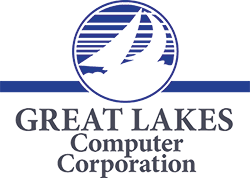 We all complain about glitchy computers. It’s too old, it never worked right, it keeps crashing. Sometimes it is faulty or outdated machinery. But most of the times the source of our computer problems is good, old fashioned Operator Error. We found a great article from about.com sharing the many ways people screw up their own PC’s. Here are 8 of them:
We all complain about glitchy computers. It’s too old, it never worked right, it keeps crashing. Sometimes it is faulty or outdated machinery. But most of the times the source of our computer problems is good, old fashioned Operator Error. We found a great article from about.com sharing the many ways people screw up their own PC’s. Here are 8 of them:
1. You’re Not Backing Up Continuously
Your data is the most important stuff you own. It’s photos, documents, music, and it’s irreplaceable. You can back up using traditional backup software or online backup services.
2. You’re Not Updating Your Antivirus Software
You took the time to purchase and install Antivirus software. You should take the time to update it. Those nefarious malware authors out there make new viruses every day, change how they work, and find new ways of avoiding antivirus software. In response, antivirus software has to respond just as quickly. In other words, your antivirus software only worked 100% the day you installed it.
3. You’re Not Patching Software Right Away
Similar to the not-updating-your-antivirus mistake, putting off those software updates, especially the operating system ones, is a great way to screw up your computer. The majority of software patches these days correct “security” issues, meaning issues that have been discovered that could allow someone to remotely access your computer! Once these vulnerabilities have been discovered, a patch has to be created by the developer and then installed on your computer, all before the bad guys figure out how to exploit said vulnerability and start doing damage. This applies to all systems and software, if you purchased it, update it!
4. You’re Still Running Windows XP
Windows XP was probably Microsoft’s most successful product of all time, certainly its most successful and popular operating system. Unfortunately, in April of 2014, Microsoft ended pretty much all support for it, meaning that those important security holes that are patched every month on Patch Tuesday are not being created for Windows XP!
5. You’ve Left Junk Installed… and Probably Running!
A pretty easy way to screw up your computer is by installing, or leaving already-installed, junk software on your computer, the worst of which is the kind that runs in the background all the time. Most people have little use for these programs but just delete the shortcuts to these programs. These programs are still installed and wasting space, just hidden from your daily view. Worse yet, some of these programs start up in the background when your computer starts, wasting your system resources and slowing down your computer. Uninstall any programs you don’t use.
6. You’re Not Defragging On a Regular Basis
Fragmentation happens naturally as your computer’s hard drive writes data all over the place. Having a bit here, and a bit there, makes it harder to read that data later, slowing down how quickly your computer can do a lot of things. No, your computer isn’t going to crash or explode if you never defrag but doing it on a regular basis can most certainly speed up pretty much every aspect of your computer use, especially non-Internet related tasks. Windows has a built-in defragmentation tool.
7. You’re Not [Physically] Cleaning Your Computer
Not properly cleaning your computer, especially a desktop computer, is an often overlooked maintenance task that could eventually screw up your computer something severe. Here’s what happens: 1) your computer’s many fans collect dust and other grime, 2) said dirt and grime build up and slow down the fans, 3) the computer parts cooled by the fans begin to overheat, 4) your computer crashes, often permanently. Most major problems can be fixed with a can of compressed air.
8. You’re Not Asking for Help When You Need It
Sometimes we can fix things ourselves. But with computers, we are often making things worse. Know when you are out of your depth and ask for help from an IT Support specialist
Hopefully these tips will help you solve some of your PC issues. If not, Great Lakes Computers is always here to help.



